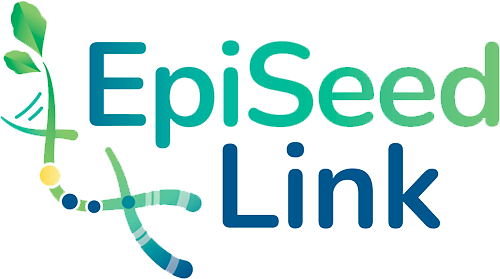PhD position in Developmental Epigenetics at the group of Dr Sara Farrona in the Centre for Plant and Agricultural Biosciences-Ryan Institute at the University of Galway, Galway, Ireland.
What are you going to do?
Epigenetic mechanisms of the memory to seed osmopriming
You will work in a project about the molecular memory triggered by seed priming (SP) in response to osmotic stress. SP has been used in agriculture for many years as a means to increase seed vigour, which is a key agricultural trait to secure successful germination and establishment of the new plant. SP may trigger a molecular memory that can persist throughout plant development. Thus, it has been hypothesised that epigenetic mechanisms, which contribute to generate stable transcriptional patterns, may be essential for generating a SP memory. In addition, it is still unknown which particular plant cells may be the depository of such a memory. Shoot apical meristematic (SAM) cells, present during the whole life of the plant, are obvious candidates to act as SP memory reservoirs.
Your aim will be to identify transcriptomic and epigenomic changes associated to SP by performing cell-specific analyses both in Arabidopsis and oilseed rape. In addition, my group has identified a SP memory candidate gene that is well conserved in Brassicaceae. Focusing on this gene, your goal will be to identify cis-regulatory sequences associated to SP. This will be a highly multidisciplinary project in which you will apply approaches for cell sorting (e.g. INTACT) and perform RNA-seq and ChIP-seq/BS-seq in Arabidopsis. Furthermore, you will carry out phylogenetic analyses of the promoter of the candidate gene in different Brassicaceae species and molecular approaches for their characterisation (e.g. mutagenesis, expression analyses). You will study if transcriptomic/epigenomic changes are conserved in oilseed rape by ChIP/BS-qPCR and RT-qPCR.
To develop this project, you will actively collaborate with partners at the University of Amsterdam, ENS, CSIC-CBGP and BioAtlantis. You will also benefit from training in plant phenotyping, oilseed rape transformation, analysis of cis-regulatory elements and bioinformatics by various partners and associated partners.
What do you have to offer?
- MSc in Molecular Biology, Plant Science or any related science
- Knowledge in molecular biology
- Background in epigenetics and/or gene expression
It is a preference if you also have experience in cytology and data analysis techniques.
Our offer
The appointment will be on a temporary basis for a period of three years. If required, there is the possibility to extend it for an additional year in which fees will be waived by the University of Galway. The appointment will be according to the employment rules of Ireland and should lead to a dissertation (PhD thesis). A Personal Career Development Plan will be drafted that includes the attendance to EpiSeedLink courses and meetings.
The gross monthly salary will be according to the MSCA programme, taking into account the country-specific correction coefficient. Besides the salary, the PhD student will obtain a mobility allowance (see page Requirements and Conditions). The position is aimed at being full-time, but by exception, if needed for family reasons, a part-time appointment is possible.
You will enroll in the structured PhD programme in Plant and AgriBiosciences offered within the School of Biological and Chemical Sciences in collaboration with Teagasc, the Irish agricultural and food development authority, and other partner organisations. This PhD programme will prepare you for a career and future research opportunities in plant & agribioscience areas. As a University of Galway student you will be well supported by the Graduate Office and the Career Development Centre which aim is to empower you as a student in our university and to make successful transitions towards fulfilling your career.
About us
University of Galway
The University of Galway (UOG) is a research and top-quality teaching university that attracts over 18,000 students and has a large international community from more than hundred different countries. The university is located in Galway, Ireland’s third largest city and regarded as the cultural capital of the country. The University of Galway is also a hub for research in Western Ireland and hosts diverse research centres focused on specific scientific disciplines. Want to know more about NUI Galway? Read more about the history and important facts of our university here.
Our lab belongs to the Ryan Institute, the University of Galway’s largest research institute and an inter-disciplinary research cluster focused on sustainability and innovation, contributing to main Sustainable Development Goals.
The University of Galway is part of the most international city in Ireland and is home to almost 4,000 international students. Galway is a highly diverse city with a strong tradition of reaching out to the world. Under the Third Level Graduate Scheme, non-EU/EEA students who have completed a PhD will be able to remain in Ireland for 24 months while seeking employment or acquiring another form of work permit or green card.
Any questions?
Do you have any questions, or do you require additional information? Please contact: Dr Sara Farrona; sara.farrona@nuigalway.ie, phone: +353 91 492683.

